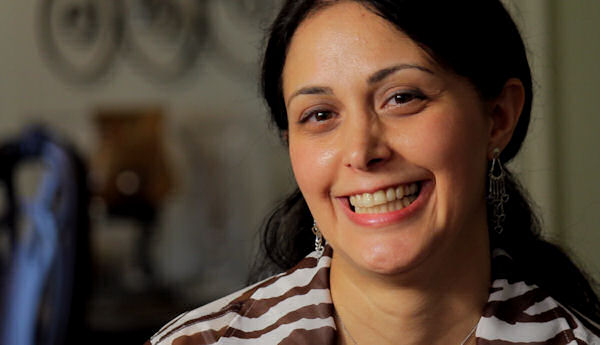
A documentary portraying the creative efforts of Iran’s biggest religious minority to educate its youth following their banning from public universities will have its Australian premiere in Sydney on 19 April.
Education Under Fire, co-sponsored by Amnesty International (USA), will screen to the public, academics and students at 6 pm in Building 1 (Level 4), at the University of Technology Sydney tomorrow.
The inspiring 30-minute documentary tells how the Baha’i Community of Iran set up the successful Baha’i Higher Education Institute (BIHE) for their youth, whom the Government bars from attending public universities due to their religion.
The Deputy Vice-Chancellor of University of Technology, Professor Shirley Alexander will open the event, and BIHE staff and students will participate in a panel discussion after the screening.
BIHE, in which some Australian professors are involved via the Internet, hit the news throughout the world last year when Iranian authorities arrested and jailed its professors and administrators.
Among the seven staff members jailed was Farhad Sedghi, 64, who was sentenced to four years for teaching accountancy. He is a brother of Dubbo businessman Nasser Sedghi.
Reaction by Australian tertiary institutions was swift. The peak tertiary body in Australia, Universities Australia, wrote to UNESCO expressing its concern about the situation. Australian professors and academics sent an open letter to the embassy, calling for the release of those jailed. The Australian Federation of Graduate Women wrote to the Iranian Ambassador raising concern that his Government would “punish those whose only offence is to wish to educate their fellow Iranians”. The Law Society of New South Wales expressed its concern to the Iranian Ambassador in October last year.
In February, an Australian House of Representatives motion called on Iranian MPs to investigate the denial of access to higher education to Baha’is and others for reasons other than academic ability.
A spokesperson for the Australian Baha’i Community, Venus Khalessi, said the ban was in breach of Iran’s responsibilities as a signatory to the International Covenant on Civil and Political Rights and the International Covenant on Economic, Social and Cultural Rights.
“This blatant act of religious persecution is part of an ongoing, systematic campaign by the authorities to eliminate the functioning of the 300,000-strong Baha’i community in Iran,” Ms Khalessi said.
BIHE volunteer teachers assisted young Baha’is to reach such high levels of achievement that some have gone on to obtain higher degrees from prestigious universities in countries including Australia and the United States. The New York Times described BIHE as an act of “communal self-preservation”.
The screening starts a series of campus and community discussions throughout Australia to raise awareness of the importance of defending Article 26 of the Universal Declaration of Human Rights, which guarantees education as an inalienable right of every human being.
The second screening will be hosted at the University of Wollongong on Friday, 4 May 2012. Others are planned for the ACT, QLD and WA, with more States to follow.
